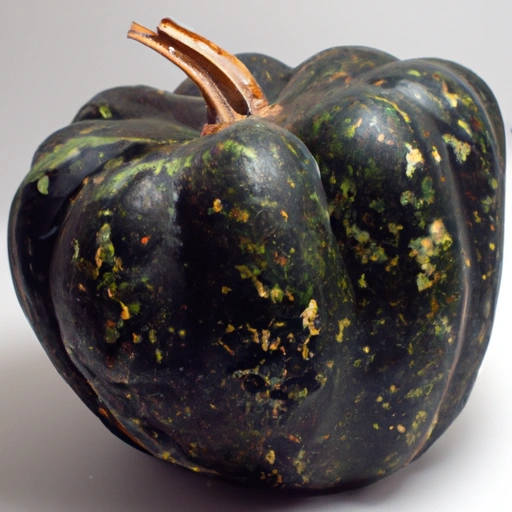Acorn Squash
Description

Acorn squash, also known as pepper squash or Des Moines squash, is a winter squash with distinctive longitudinal ridges and sweet, nutty flesh. Its shape resembles that of an acorn, which is where it gets its common name. Acorn squash comes in a variety of colors, including dark green, orange, and white. When cooked, it has a smooth, tender texture, making it a versatile ingredient in a plethora of dishes.
Common uses
Acorn squash is often used in both sweet and savory dishes. It can be roasted, baked, steamed, sautéed, or stuffed, making it a popular choice for a wide range of recipes such as soups, stews, salads, and desserts. Its natural sweetness pairs well with a variety of spices and other flavors, enhancing its culinary appeal.
Nutritional value
Calories
A 1-cup serving (approximately 205 grams or 7.2 ounces) of cooked acorn squash provides around 115 calories.
Protein
That same serving size offers about 2.3 grams (0.08 ounces) of protein.
Fat
Acorn squash is low in fat, containing just 0.3 grams (0.01 ounces) per serving.
Carbohydrates
It is a good source of carbohydrates, with about 30 grams (1.06 ounces) per cup.
Vitamins
Acorn squash is rich in vitamins, including vitamin C, B vitamins, and particularly high in vitamin A, providing 18% of the recommended daily intake (RDI) per serving.
Minerals
The squash also contains valuable minerals such as potassium, magnesium, and iron.
Health benefits
Acorn squash is a nutritious food that supports overall health. The high fiber content aids in digestion and promotes a feeling of fullness, which can help with weight management. Its antioxidants, such as beta-carotene and vitamin C, contribute to immune system support and may reduce the risk of chronic diseases. The potassium in acorn squash can help maintain healthy blood pressure levels.
Potential risks
There are no significant risks associated with acorn squash consumption for most people. However, those with allergies to certain types of squash should avoid it, and individuals with kidney problems should manage potassium intake under a healthcare provider's guidance.
Common recipes
Acorn squash can be featured in recipes like stuffed acorn squash, squash risotto, creamy squash soup, and even desserts like squash pie.
Cooking methods
Popular cooking methods include roasting (cut into halves or slices at 400°F / 200°C for about 30 to 45 minutes), baking (often halved and baked at the same temperatures), or steaming until tender.
Pairing with other ingredients
It pairs superbly with ingredients like maple syrup, cinnamon, nutmeg, and savory herbs like sage and thyme. For a protein complement, it works well with chicken, pork, and beans.
Summary
Acorn squash is a delicious and healthful ingredient that features prominently in a range of dishes worldwide. With its sweet and nutty flavor, acorn squash can be prepared in numerous ways and offers considerable nutritional value, including vitamins, minerals, and fiber. Its historical significance and culinary flexibility continue to make it a cherished ingredient in kitchens across the globe.